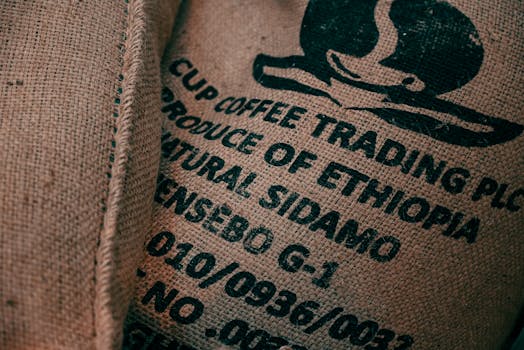Natural Fibers, Global Markets: Africa’s Role in the Sustainable Textile Revolution

Natural Fibers, Global Markets: Africa’s Role in the Sustainable Textile Revolution
Natural fibers, global markets, and Africa’s role in the sustainable textile revolution are becoming increasingly important topics in today’s eco-conscious world. As consumers become more aware of the environmental impact of their purchasing decisions, the demand for sustainable textiles is on the rise. Africa, with its rich natural resources and growing textile industry, is well-positioned to play a significant role in this revolution.
Natural fibers, such as cotton, wool, and silk, are biodegradable, renewable, and require less water and pesticides compared to synthetic fibers. These fibers are also breathable, durable, and have natural temperature-regulating properties, making them ideal for clothing and textiles. The global market for natural fibers is expected to grow significantly in the coming years, driven by increasing consumer demand for sustainable and eco-friendly products.
Africa is home to a significant proportion of the world’s natural fiber production, with countries such as Egypt, South Africa, and Nigeria being major producers of cotton, wool, and other natural fibers. The continent’s favorable climate, abundant land, and low labor costs make it an attractive location for textile production. African countries are also investing heavily in the development of their textile industries, with a focus on sustainable and eco-friendly practices.
The Benefits of Natural Fibers
Natural fibers have numerous benefits, including reduced carbon footprint, improved soil health, and enhanced biodiversity. The production of natural fibers requires less energy and water compared to synthetic fibers, making them a more sustainable option. Additionally, natural fibers are biodegradable, which reduces the amount of textile waste in landfills and oceans. The use of natural fibers also promotes eco-friendly practices, such as organic farming and fair trade, which contribute to the well-being of farmers and their communities.
Africa’s natural fiber production is not only beneficial for the environment, but it also provides economic benefits to local communities. The textile industry is a significant employer in many African countries, providing jobs and income for thousands of people. The export of natural fibers also generates significant revenue for African countries, contributing to their economic growth and development.
Challenges and Opportunities
Despite the benefits of natural fibers, there are several challenges facing Africa’s textile industry. One of the major challenges is the lack of investment in infrastructure, including roads, ports, and storage facilities. This can lead to delays and increased costs in the transportation of natural fibers to global markets. Another challenge is the lack of standardization and regulation in the industry, which can make it difficult for African producers to meet international standards and compete with other producers.
However, there are also opportunities for Africa’s textile industry to grow and develop. The increasing demand for sustainable textiles provides a unique opportunity for African producers to tap into the global market and increase their exports. The development of new technologies and innovations, such as organic farming and digital printing, can also enhance the efficiency and competitiveness of Africa’s textile industry.
Conclusion
In conclusion, Africa is playing a significant role in the sustainable textile revolution by producing and exporting natural fibers to the global market. The benefits of natural fibers, including reduced carbon footprint, improved soil health, and enhanced biodiversity, make them an attractive option for consumers and producers alike. While there are challenges facing Africa’s textile industry, there are also opportunities for growth and development. As the demand for sustainable textiles continues to rise, Africa is well-positioned to become a major player in the global market.




